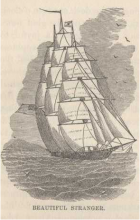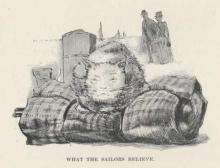Watson's Hotel, Bombay, India
- Read more about Watson's Hotel, Bombay, India
- Log in to post comments
Mark Twain visits Gibraltar. According to McKeithan (1958) Interrogation Point was originally described as "a born ass". This characterization was changed in the book to "a good-natured, enterprising idiot". The full article as printed in the Daily Alta California is included as an image on this page. I cannot find these phrases in the included article so perhaps they are from another in the series of letters.


A day hike, circa '75, of the Kuna Crest, Yosemite National Park. The little blue flag marks the spot where the photo of myself, on the Kuna Glacier crevasse, was taken (see my home page). Click on the Traverse Pages to follow the trail. This set of pages consists of twelve (12) sections - pages that contain an image map with clickable icons. Each icon links to a page with a photograph I took on the hike as well as an Google Earth Image of the approximate location of where the photo was taken.